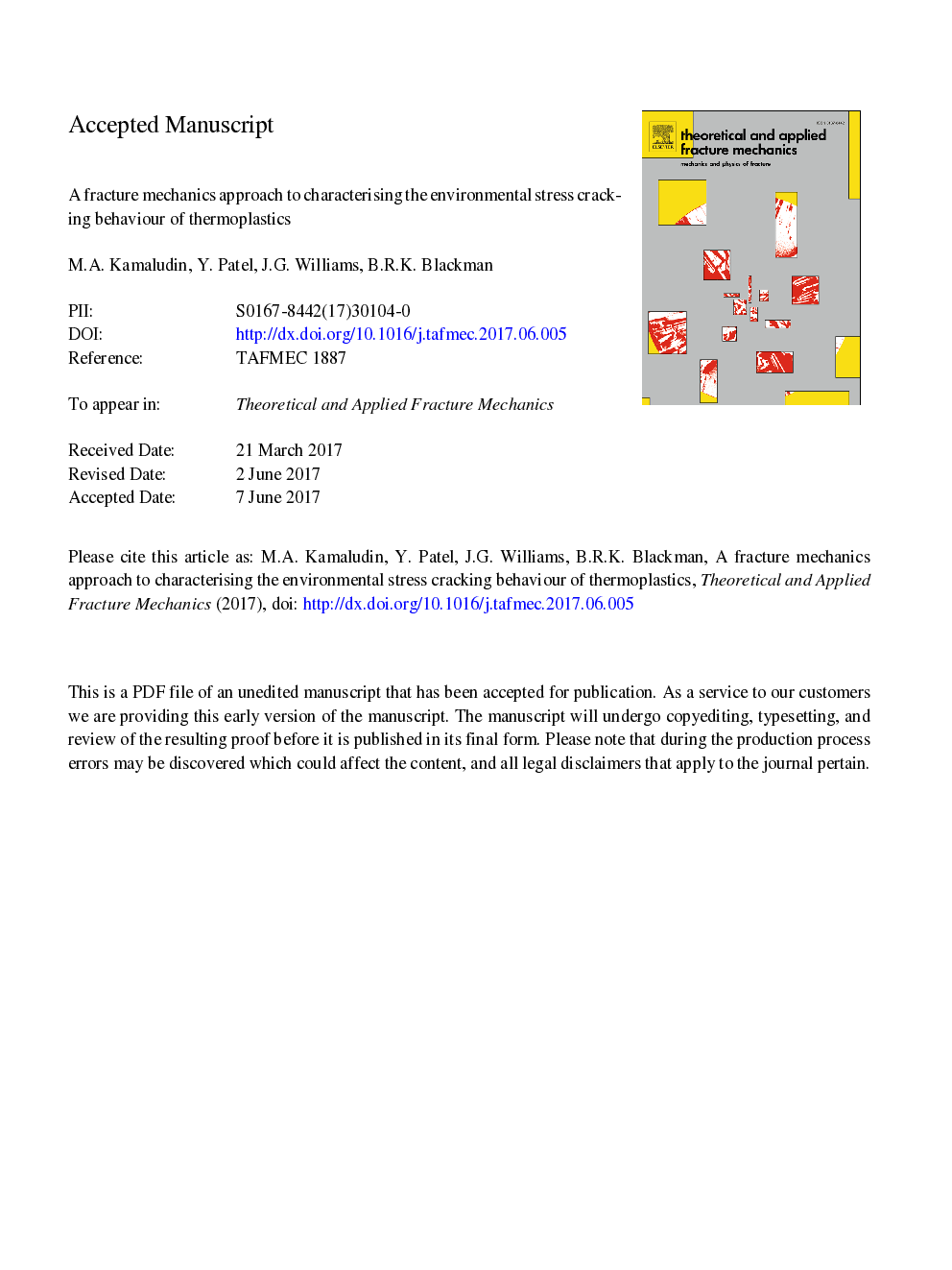| Article ID | Journal | Published Year | Pages | File Type |
|---|---|---|---|---|
| 7196353 | Theoretical and Applied Fracture Mechanics | 2017 | 20 Pages |
Abstract
Environmental stress cracking (ESC) is known to affect certain thermoplastics and occurs under simultaneous exposure to both applied stress and a hostile environment. The combination of these can cause a crack to form from a flaw in the material; upon reaching a critical size, the crack may accelerate thus causing catastrophic failure in the component. Various tests have been utilised to measure the resistance of different polymers to ESC, but these are often material- and application-specific and overlook the different stages of the failure process. In the present work, a fracture mechanics approach has been developed and applied, with a view to developing a test method that has wide applicability and provides both insight into the failure mechanisms as well as information for engineering design. Experimental results are presented for the following polymer-environment combinations: linear low-density PE in Igepal solution, HIPS in sunflower oil, and PMMA in methanol. It is shown that the representation of the results in the form of G versus crack velocity and G versus time can distinguish between materials of varying ESC resistance, identify the important regions of the failure process, and enable component life prediction.
Related Topics
Physical Sciences and Engineering
Engineering
Mechanical Engineering
Authors
M.A. Kamaludin, Y. Patel, J.G. Williams, B.R.K. Blackman,
